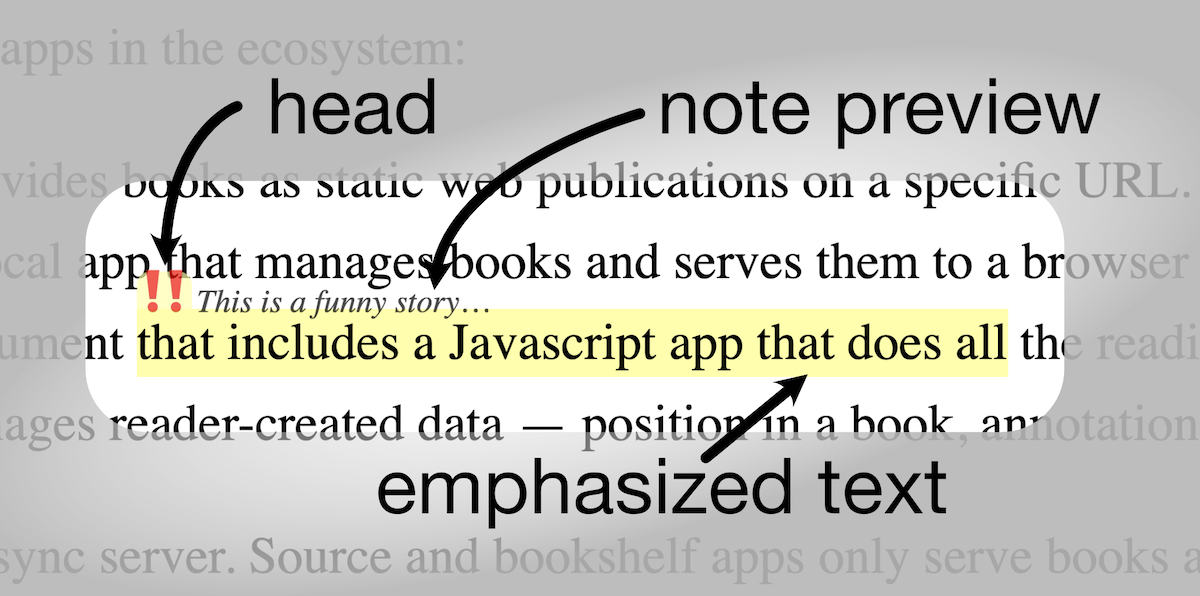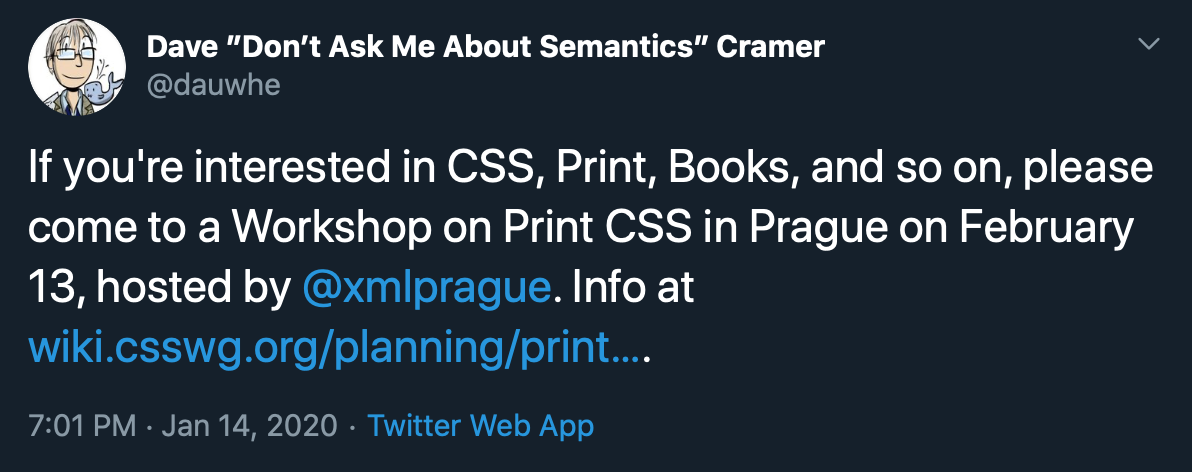
Hello, readers!
Unexpectedly, this e-mail finds you in the new decade! Sorry to keep you waiting! I hope to make it up with some crunchy links and handsomeness of the newly consolidated visuals.
Our team is prepping for intense sessions with potential partners and at the same time, the annotation module is entering its first user testing phase. In just 10 weeks, we should know whether there is a path to sustainability, so there’s a lot to do. Please, keep your fingers crossed for us!
Meanwhile, have a nice day!
— Jan (jan@next-book.info)
P.S. If you think this could interest some of your friends, please hit the forward button. Thanks! <3
1. Future of digital publishing is the web
Baldur Bjarnason (definitely follow him @fakebaldur) posted a great list of various ideas about “the past, present, and future of web development”. He starts and finishes with thoughts on development, but the mid-part is mostly about digital publishing:
“I’m more and more leaning towards the idea that the future of digital publishing is the web. (…) Whether that bloom happens or not is no longer a question of technological capacity but of social and cultural factors that are hard to predict or anticipate. (…) This means that ebooks will fall further and further behind and continue to be limited to being a modern replacement of the mass market paperback, with largely the same design limitations. (…) All current modes of digital distribution are unsustainable and are likely to change over the coming ten years.”
CTRL/CMD+F the first quoted sentence above to find more (sometimes I’d like to have publisher applied everywhere).

A sneak peek into the interaction model of an annotation — it’s head is the core of affordances. We’re still at early stages, only going into first testing, and the visual design is primitive. I hope that we can overcome (or at least evolve) the “highlighter visual paradigm”.
2. 2010 ← 📖 → 2030
If you find the biz/sustainability perspective interesting, read Why Ebook Subscription Services Will Finally Succeed In The Coming Decade in Forbes. Even though I hope that we won’t end up with five massive book subscription services in 2030 and nothing else, it’s an interesting take. And sometimes the most chilling words come in paragraphs starting most merrily:
“By the way, there are actually many ebook services that offer large catalogs of Big 5 titles today, and for free, though relatively few people know about them: public libraries.
One major investor, the private equity behemoth KKR (Kohlberg Kravis Roberts), is excited about this opportunity: it just acquired OverDrive, the leading library ebook lending platform, from the Japanese e-commerce company Rakuten last month for an undisclosed price.”
(I have to quote @fakebaldur here, bacause I’m really afraid of “entrepreneurs seeking to ‘fix’ education by establishing monopoly dominance over some vital cornerstone that everybody relies on.”)
Vox, on the other hand, speaks about the last ten years: The 2010s were supposed to bring the ebook revolution. It never quite came. It’s a nice summary of the Apple vs. Amazon book pricing legal battle in the wider context of the decade and tech optimism:
«By 2010, it was clear that ebooks weren’t just a passing fad, but were here to stay. They appeared poised to disrupt the publishing industry on a fundamental level. (…) Instead, at the other end of the decade, ebook sales seem to have stabilized at around 20 percent of total book sales, with print sales making up the remaining 80 percent. “Five or 10 years ago, (…) you would have thought those numbers would have been reversed.”»

See you there, perhaps?
3. Improving focus on the text
A small, but interesting thing we worked on is a better “pagination” interaction experiment based on our internal testing findings — check it out and tell us if you find it good, bad or interesting. (Smaller the screen, bigger the difference, so maybe resize the window if you’re trying it out on a computer.)
As I mentioned few months back while in Regensburg, scientists repeatedly find that scrolling makes reading harder — people remember less and understand worse (Scientific American has a well written summary).
The interaction might help readers to stop thinking about moving through the text while keeping all the goodness that comes with scrolling. Honestly, the thing that makes me nervous is that I haven’t already seen something like this elsewhere (in place of a hard-paginated view on Instapaper and such).

See you in two weeks!
Before you go: there’s another book out there! It’s a re-edition of an earlier next-book created back in 2017 with the very first prototype of our software. It’s about Film Studies and it’s in Czech. (Sorry, next one will be English again!)
You can read a full text of “Co je nového ve filmové vědě?” at Nová beseda’s web store for free (registration is required, but only e-mail address is needed).
Have a great winter evenings, and see you in two weeks! 🤞 (Also, our website is getting better — bit by bit. We‘re starting a small linkblog there.)